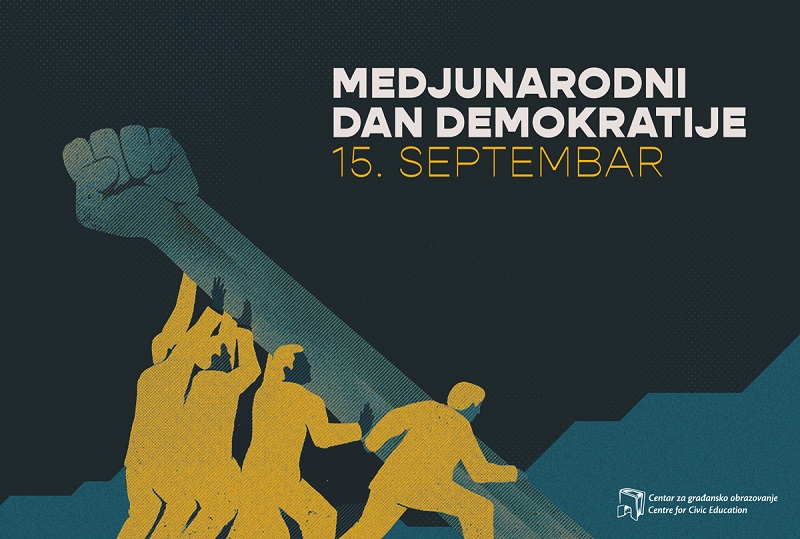On the occasion of 15 September – the International Day of Democracy, the Centre for Civic Education (CCE) reminds that the health and accompanying socio-economic crisis caused by the COVID19 pandemic highlighted the deficiencies of the authorities in many countries, especially those with a serious deficit of political accountability.
Soon after the outbreak of COVID-19 in Montenegro, in its report ‘Montenegro and the coronavirus – state of the nation in the first six weeks’ published in April this year, the CCE pointed to a possible escalation of ‘serious problems arising in the complex Montenegrin socio-political milieu characterized by institutions with weak democratic capacity ‘ and warned that in addressing pandemic, democratic standards and human rights must not be weakened and that solidarity and trust within society should be strengthened to facilitate facing and overcoming the challenges ahead.
Today, six months later, it is obvious that the implementation of measures to prevent the spread of the coronavirus has been selective and that it has weakened the already dysfunctional rule of law, the enjoyment of certain human rights that were not in conflict with the need to preserve public health, as well as the trust of citizens in institutions. Montenegrin citizens also got a message from the authorities on this example that the same rules do not apply to everyone equally, thus marking the beginning of the end of the successful initial crisis management that the pandemic caused.
In April, the United Nations, in its the report ‘COVID-19 and Human Rights’, expressed concern about the practices of individual countries that have taken measures to control the flow of information or restricted freedom of expression and freedom of the media by narrowing the space for civil society action; arrested, detained and prosecuted political opponents, journalists, doctors and health-care workers, activists, etc. based on an alleged spread of fake news; applied aggressive policies of virtual cyberspace control and enhanced online surveillance; as well as postponing elections in some countries. In Montenegro, elections have not been postponed, but in all other segments, the abuse of the current situation by the authorities to deal with political dissidents and conduct party-interest policy is noted.
Montenegrin authorities have made a particular derogation of human rights and a slap in the face for democracy by publishing lists of persons potentially infected with the COVID19 with their personal data. This created a lynching atmosphere towards persons who, even in situations of increased health risk, have the right to have their medical conditions being part of a confidential doctor-patient relationship. Additionally, this measure was disproportionate and contrary to democratic practices, as confirmed by the Constitutional Court.
The submission of justice to the party interests and vanities of high state officials during the pandemic is reflected in the arrest of individuals based on status published on social media, through which, in various ways, decisions and practices of the authorities and its representatives were criticized.
The Montenegrin authorities have also acted irresponsibly when it comes to conducting elections under pandemic situation without providing appropriate conditions, and the consequences are now occurring. Additionally, post-election gatherings that were not prevented by the authorities, and some of them even promoted in public, are yet to be reflected, although the epidemiological situation is already dramatic.
The elections demonstrated citizens’ high motivation to change the ruling majority, after several decades, peacefully and democratically. This opens the process of democratic maturation in which all stakeholders will have a far higher degree of political accountability as they are aware that they are dismissible.
The United Nations urges the governments of its member states to be accountable and transparent for the benefit of their citizens, mitigating the socio-economic strikes of the COVID19. ‘We are all in this Together’ is the message of this year’s celebration of the International Day of Democracy by the UN, which we in Montenegro should apply for the sake of fight against the pandemic, but also political and institutional problems that limit the democratic potential of Montenegrin society.
The International Day of Democracy was declared by the UN in 2007, with the aim of promotion and consolidation of democratic principles and values, especially those linked to freedom and human rights.
Zeljka Cetkovic, Active Citizenship Programme Coordinator

